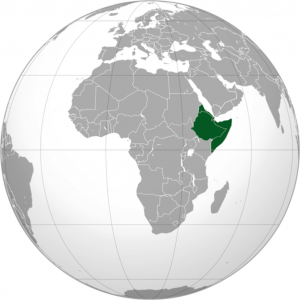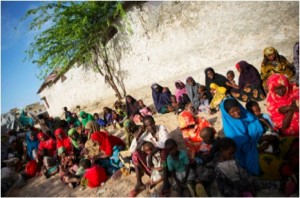January 2012
Work for All Supports
Through the United Nations Development Programme (UNDP), we are contributing to efforts in the Horn of Africa, where 13.3 million people are in urgent need. This project is bringing opportunity to people through “cash-for-work” programs, vocational training, rebuilding critical infrastructure, establishing markets to help ensure food quality, building hospitals, and providing education.
 Work for All and the UNDP in Africa
Work for All and the UNDP in Africa
Dear Reader:
Last week, a friend questioned me about our donations to the United Nations. She inquired: “Are we supporting different countries getting together in the General Assembly, or their operations?”
In response, I contacted Mark Cardwell, the Chief of Online Communications for the United Nations Development Programme, which is where a portion of our resources, going to the UN, are being invested right now.
His reply: “Dear Mr. Leonard,
These funds go to Crisis Prevention and Recovery Thematic Trust Fund of the United Nations Development Programme (UNDP), not to general operations. Currently, these funds are working to provide crisis recovery in the Horn of Africa.”
I took the time to review the 2010/ 11 Annual Report of the UNDP. I believe that their goals are well aligned, at the moment, with those of our foundation. For more information, please refer to www.undp.org.
What is UNDP doing specifically in response to the crisis in the Horn of Africa and Kenya?
It should be noted that Somalia, Ethiopia, Djibouti Eritrea, and Kenya each present their own unique regional issues.
The UNDP response in Somalia is focussed on restoring essential agriculture infrastructure. In Kenya, the UNDP has been working closely with the United Nations High Commissioner for Refugees (UNHCR) to ease the strain on the country’s, already over-taxed, refugee host communities. The UNDP is workingtirelessly to restore farming to communities and to provide vouchers to vulnerable groups.
Another friend spent two weeks in Africa in October 2011. He returned to North America with a new understanding of the local African culture (he did not mean the symphony or the opera). My friend saw that the local men considered themselves hunters. It has been the vocation of males for generations. There was no interest in farming or engaging in other activities that could lead to a more regular source of food and income. The women did not see any opportunity beyond having a family.
At Work For All, we want to help people find their own solutions to systemic poverty. Perhaps a longer time horizon, through better education and infrastructure, would open the door for some of those young men and women to want to become teachers, farmers and entrepreneurs?

